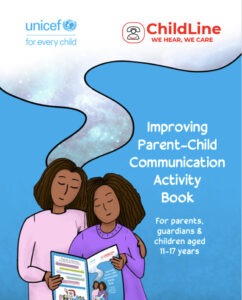Protecting Youth in a Digital World
In today’s hyper-connected world, young people spend a significant amount of time online chatting, sharing photos, exploring friendships, and building relationships. While digital spaces offer many opportunities, they also come with risks. One alarming danger on the rise is sextortion: a form of online blackmail where someone threatens to share a person’s intimate images unless they comply with further demands. These demands may include sending more explicit content or money.
Sextortion often affects teens, who may not recognise the danger until it’s too late. Perpetrators can be strangers or even people the victim knows. They often use fake profiles, impersonate others, or manipulate emotions to gain trust and control.
Teens experiencing sextortion may exhibit sudden changes in mood or behaviour, such as anxiety, depression, or emotional withdrawal. They may become secretive about their online activity, hiding screens, using multiple accounts, or obsessively checking their devices, especially late at night. Affected teens may also withdraw from family, friends, or activities they previously enjoyed, and their academic performance might suddenly decline.
Be alert to unexplained financial behaviour, such as requesting money or attempting to purchase gift cards without a clear reason. Even teens from lower-income backgrounds might suddenly try to obtain money through unusual means. Other signs include feelings of shame, guilt, fear, or vague comments about being “in trouble.” They may also experience physical symptoms like headaches or sleep disturbances and start using coded language or specific emojis to communicate distress. A strong fear of punishment may keep them from asking for help.
If you notice several of these signs, it’s essential to respond with care, support, and action. Early intervention can prevent further harm.
What Are the Warning Signs?
If you’re a parent, guardian, teacher, or youth worker, look out for these red flags, According to (Teens Sextortion Scams: Keeping Kids Safe from Online Sextortion, 2023)
Sudden Mood Swings or Anxiety
Teens may become anxious, sad, or easily upset without explanation. Some withdraw emotionally or act irritably.
Constant or Secretive Device Use
They may seem obsessed with their phones or nervous when online. Look for frequent password changes, screen-hiding, or late-night phone use.
Avoiding Social Activities
They may stop hanging out with friends or avoid school or group activities they once enjoyed.
Unexplained Requests for Money or Gift Cards
Some may ask for money or try to buy things secretly, a red flag that they might be paying someone off.
Feelings of Shame or Fear
They might say things like “I’m in trouble” or seem unusually stressed, scared, or guilty.
Signs of Self-Harm or Talk of Suicide
If a teen mentions feeling hopeless or shows signs of self-harm, take it seriously and act quickly.
What can you Do?
If this is happening to your child or teen
- Don’t delete messages, pictures, or videos: they can be used as evidence.
- Don’t pay or give in to threats.
- Talk to someone you trust: a parent, teacher, counsellor, or ChildLine.
- Report it to the police or contact a support organisation listed below.
Why Teens Don’t Always Speak Up
Many teens feel scared, ashamed, or worried they will get in trouble: especially if they send images of themselves. Some believe no one will believe them or that it’s their fault.
But here’s the truth:
No one deserves to be blackmailed. It’s not your fault, and there’s help.
How Adults Can Help
- Start open, non-judgmental conversations about online safety.
- Let teens know it’s okay to ask for help.
- Don’t blame, listen and support them emotionally.
- Work with professionals like counsellors, police, or child protection services if needed.









